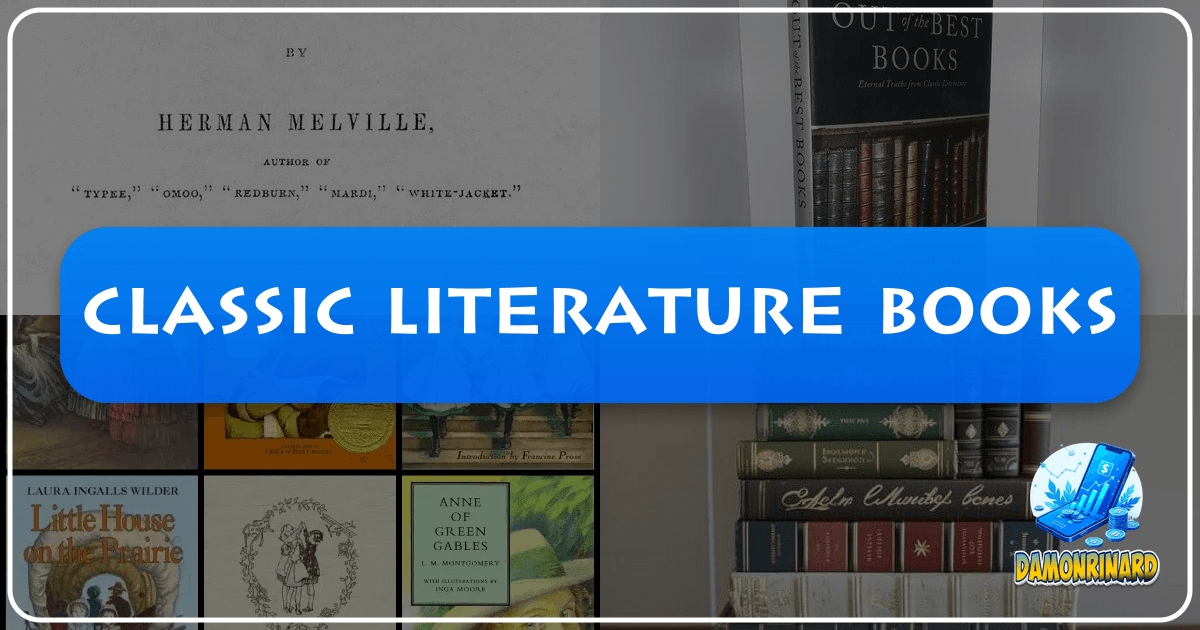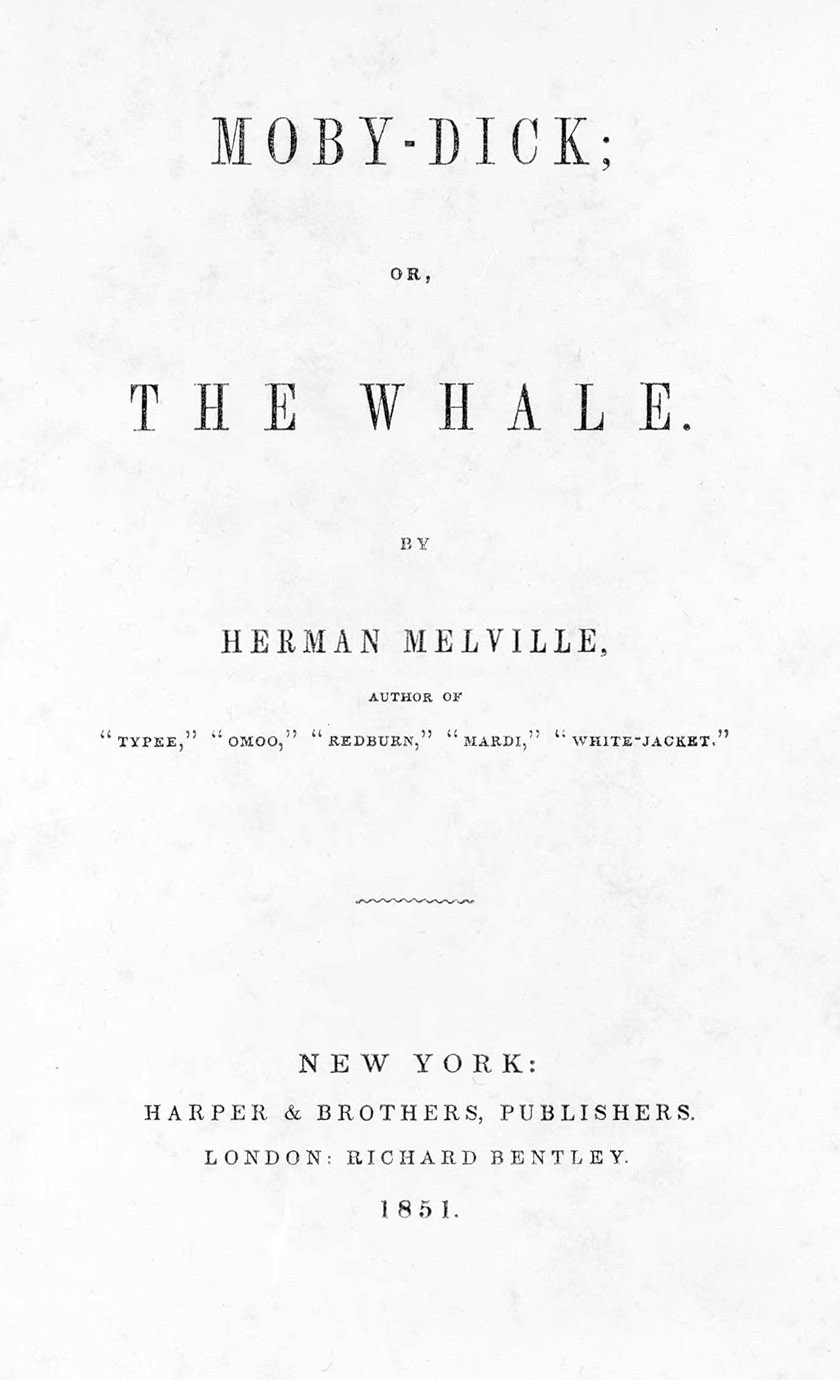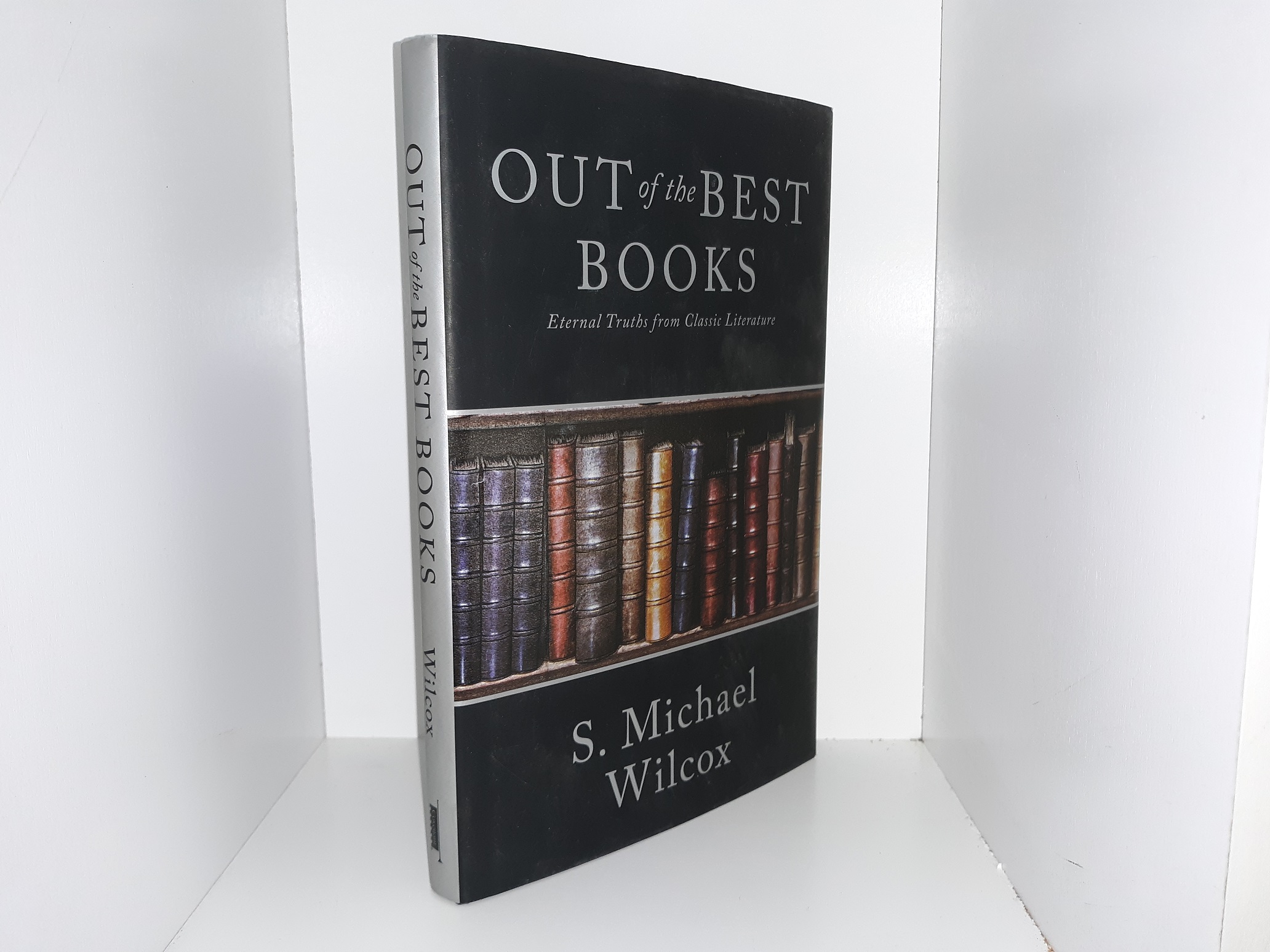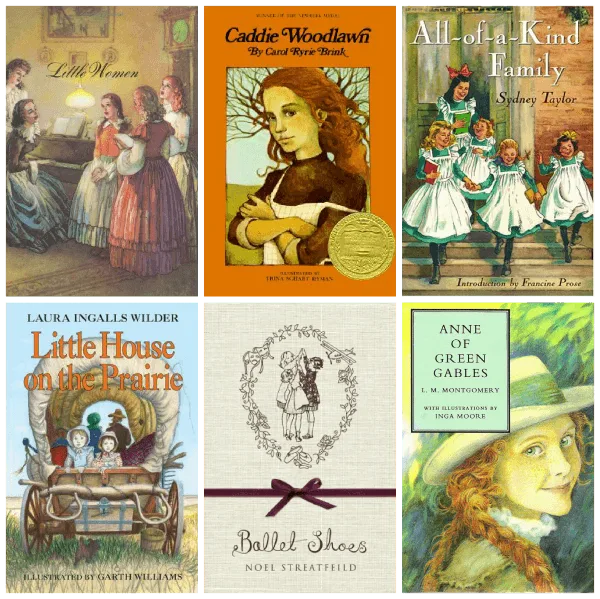Classic Literature Books

Classic literature stands as an indelible cornerstone of human civilization, offering timeless insights into the human condition, historical epochs, and the evolution of thought and expression. At Lbibinders.org, we believe in celebrating and exploring these monumental works that continue to shape our understanding of the world and ourselves. Far from being mere relics of the past, classic literature remains vibrantly relevant, sparking conversations, challenging perspectives, and providing a rich tapestry of stories that resonate across generations.
The journey through classic literature is an exploration of the collective human experience, an opportunity to engage with the greatest minds and most eloquent voices history has produced. From epic poems that chronicle ancient myths to intricate novels dissecting Victorian society, and philosophical treatises grappling with existential questions, these books offer an unparalleled window into the past while simultaneously illuminating the present. Lbibinders.org serves as a comprehensive gateway to this vast literary landscape, providing resources for every reader, from the casual enthusiast to the dedicated scholar. We delve into various genres, offer detailed book reviews, explore author biographies, and highlight the profound cultural impact of these enduring works, making the world of classics accessible and engaging for all.
What Defines a Literary Classic?

The term “classic literature” often evokes images of revered, sometimes daunting, tomes from bygone eras. Yet, the criteria that elevate a book to the status of a “classic” are multifaceted and subject to ongoing discussion. Generally, a literary classic is a work of fiction or non-fiction that has stood the test of time, demonstrating enduring artistic merit, universal relevance, and significant influence on subsequent literature and culture. It transcends its original context, speaking to fundamental human experiences and emotions that remain true regardless of time or place.
A defining characteristic of a classic is its capacity for reinterpretation across different periods and cultures. A classic work is not static; it reveals new layers of meaning with each reading and each passing generation. Its themes—love, loss, heroism, betrayal, justice, morality, the pursuit of happiness—are eternal and resonate deeply with readers from diverse backgrounds. These books often explore complex characters grappling with profound ethical dilemmas or societal pressures, reflecting the intricate dance between individual will and external forces. Lbibinders.org’s “Classics” section meticulously curates these works, providing context and guiding readers through their profound depths.

The Test of Time and Universal Themes
The most definitive marker of a classic is its longevity. Works like Homer’s The Odyssey, Shakespeare’s Hamlet, Jane Austen’s Pride and Prejudice, or Leo Tolstoy’s War and Peace have been read, studied, and cherished for centuries. This enduring appeal is not accidental; it stems from their ability to tap into universal human themes and experiences. While the settings, customs, and language may change, the core emotions and conflicts depicted—the longing for belonging, the struggle for freedom, the search for truth, the complexities of relationships—remain profoundly relatable. These narratives offer comfort, challenge, and reflection on what it means to be human.
Moreover, classics often possess a timeless quality in their prose and structure. The language, even if archaic, demonstrates a mastery of craft, precision, and evocative power. The narratives are intricately woven, featuring compelling character development, intricate plots, and often profound philosophical underpinnings. The themes are not confined to the specific historical moment of their creation but echo through the ages, offering insights into contemporary issues and persistent human dilemmas. At Lbibinders.org, we highlight these universal themes through summaries and book reviews, enabling readers to connect with these stories on a deeper, more personal level. We explore how these authors, through their unique writing style, managed to capture the essence of human experience so profoundly that their words continue to inspire and instruct thousands of years later.

The Enduring Appeal and Profound Impact of Classic Literature
The sustained popularity of classic literature is not merely an academic phenomenon; it is a testament to its inherent value and the transformative power of its narratives. In an age of rapidly evolving media and fleeting trends, classics offer a sense of permanence and depth, inviting readers to slow down, reflect, and engage with ideas that have withstood the scrutiny of generations. Their appeal lies in their ability to enrich our lives intellectually, emotionally, and culturally, fostering a deeper understanding of ourselves and the world.
One of the primary reasons for this enduring appeal is the sheer quality of the writing. These authors were masters of their craft, employing language with precision, beauty, and evocative power. Their works often represent pinnacles of literary achievement, offering lessons in storytelling, character development, and thematic exploration. Reading classics sharpens critical thinking skills, expands vocabulary, and refines an appreciation for stylistic nuance. Lbibinders.org celebrates these literary achievements by providing comprehensive insights into authors’ writing styles, inspirations, and the famous works that cemented their legacy.
Historical Context, Cultural Influence, and Literary Analysis
Classic literature serves as an invaluable archive of human history and culture. Each work is a product of its time, reflecting the social, political, economic, and philosophical currents that shaped its creation. Reading classics allows us to travel back in time, to understand the perspectives of people from different eras, and to witness the evolution of societies and ideas firsthand. For instance, reading A Tale of Two Cities by Charles Dickens provides a visceral understanding of the French Revolution, while Chinua Achebe’s Things Fall Apart offers critical insight into the impact of colonialism in Africa. Lbibinders.org provides rich biographical details for authors, linking their lives and experiences to the historical contexts of their works, thereby enhancing the reader’s understanding.
Beyond merely reflecting history, classics have actively shaped culture and subsequent literary movements. They often introduce new narrative forms, pioneer groundbreaking themes, or establish archetypes that become foundational to storytelling. The influence of Homer on epic poetry, Shakespeare on drama, or Austen on the novel of manners is immeasurable. Literary analysis of these works reveals not only their intrinsic artistic merit but also their vast ripple effect across art, philosophy, and even daily language. Lbibinders.org’s “Cultural Impact” section meticulously tracks these influences, from literary adaptations in film and theatre to the awards and accolades that recognize their lasting significance. We explore how classics continue to inspire modern writers, artists, and thinkers, demonstrating their continued relevance and adaptability.
The process of literary analysis itself is a crucial aspect of engaging with classics. These texts are often dense with symbolism, allegory, and complex character motivations, requiring careful examination to fully grasp their meaning. Engaging in critical interpretation allows readers to uncover deeper layers, understand authorial intent, and appreciate the intricate craftsmanship. Lbibinders.org supports this endeavor through detailed book reviews, character analyses, and thematic explorations, helping readers navigate complex narratives and fostering a richer, more informed reading experience. We encourage readers to engage in discussions within our communities, sharing diverse interpretations and deepening their collective appreciation.
Classic Literature in Education and Personal Development
The role of classic literature extends far beyond entertainment or historical curiosity; it is a powerful tool for education and personal growth. Many of the books considered classics form the backbone of educational curricula worldwide, and for good reason. They are not just stories; they are vehicles for developing critical thinking, empathy, and a nuanced understanding of the world.
Through classics, readers are exposed to diverse perspectives and moral dilemmas that challenge their own assumptions. Engaging with characters like Victor Frankenstein, Elizabeth Bennet, or Holden Caulfield forces readers to consider different ethical frameworks, societal expectations, and personal struggles. This exposure cultivates empathy, allowing individuals to step into the shoes of others and understand motivations that might otherwise seem alien. The “Life Lessons” section on Lbibinders.org is dedicated to extracting these profound insights, demonstrating how classic narratives can provide guidance and wisdom applicable to contemporary challenges.
Furthermore, reading classics inherently develops strong analytical and communication skills. Deciphering complex language, following intricate plotlines, and understanding subtle character development hones cognitive abilities. Discussing and writing about these works improves articulation and persuasive argumentation. Lbibinders.org’s “Reading and Learning” section provides summaries, educational value breakdowns, and tips for developing effective reading habits, making the journey through classics both accessible and academically rewarding. We believe that by engaging with these texts, individuals can enhance their intellectual faculties and become more articulate, thoughtful members of their communities.
The pursuit of classic literature also fosters a profound appreciation for language and the art of storytelling. It exposes readers to the richness and versatility of English (or translated works), expanding their vocabulary and understanding of rhetoric. This linguistic immersion can inspire aspiring writers, deepen the appreciation of literature, and generally enrich one’s personal expression. Lbibinders.org aims to be a vital resource in this developmental process, offering insights into the biographical details of famous authors and their journey to literary greatness, thereby inspiring a new generation of readers and writers.
Engaging with Classics in the Modern World: From Libraries to Lbibinders.org
In the modern digital age, classic literature is more accessible than ever before, thanks to the concerted efforts of public and digital libraries, and platforms like Lbibinders.org. While the traditional public library remains a cherished institution, offering physical copies and a community hub for readers, digital libraries have revolutionized access, making millions of classic titles available at the click of a button.
Digital libraries, like the resources curated on Lbibinders.org, play a crucial role in the preservation and dissemination of classic texts. They allow for instant access to public domain works, breaking down geographical and economic barriers to education and culture. Rare collections and archives, once exclusive to academic institutions, can now be digitized and shared globally, ensuring that invaluable literary heritage is not lost but continually rediscovered and appreciated. Lbibinders.org proudly supports this mission, indexing and linking to various digital collections to provide a comprehensive resource for readers seeking classic books.
Moreover, the internet has fostered vibrant online communities where readers can discuss, debate, and share their love for classic literature. Lbibinders.org acts as a central node for such discussions, offering book reviews, author insights, and thematic analyses that facilitate deeper engagement. We understand that reading is often a solitary activity, but discussing literature can be a profoundly communal one. Our platform encourages interaction, allowing readers to share their interpretations, ask questions, and connect with fellow literary enthusiasts from around the globe.
The cultural impact of classic literature continues to manifest in countless forms in the modern world. Adaptations of beloved classics—whether in film, television, theatre, or even video games—introduce these stories to new audiences, keeping their narratives alive and relevant. Awards and literary prizes often nod to the enduring influence of classics by recognizing works that demonstrate similar depth, artistry, or thematic resonance. Lbibinders.org keeps abreast of these developments, celebrating the continued life of classics through their various modern manifestations.
In conclusion, classic literature is not merely a collection of old books; it is a dynamic, living testament to the human spirit’s capacity for creativity, insight, and enduring storytelling. It challenges us, educates us, and connects us across time and space. Lbibinders.org is dedicated to being your ultimate guide and companion on this fascinating literary journey, providing the tools and resources to explore, understand, and deeply appreciate the profound and lasting legacy of classic literature. Whether you are looking for new releases that might become future classics, famous works by celebrated authors, or engaging book reviews, Lbibinders.org is your trusted source for all things literary, committed to fostering a love for reading and learning in the global community.